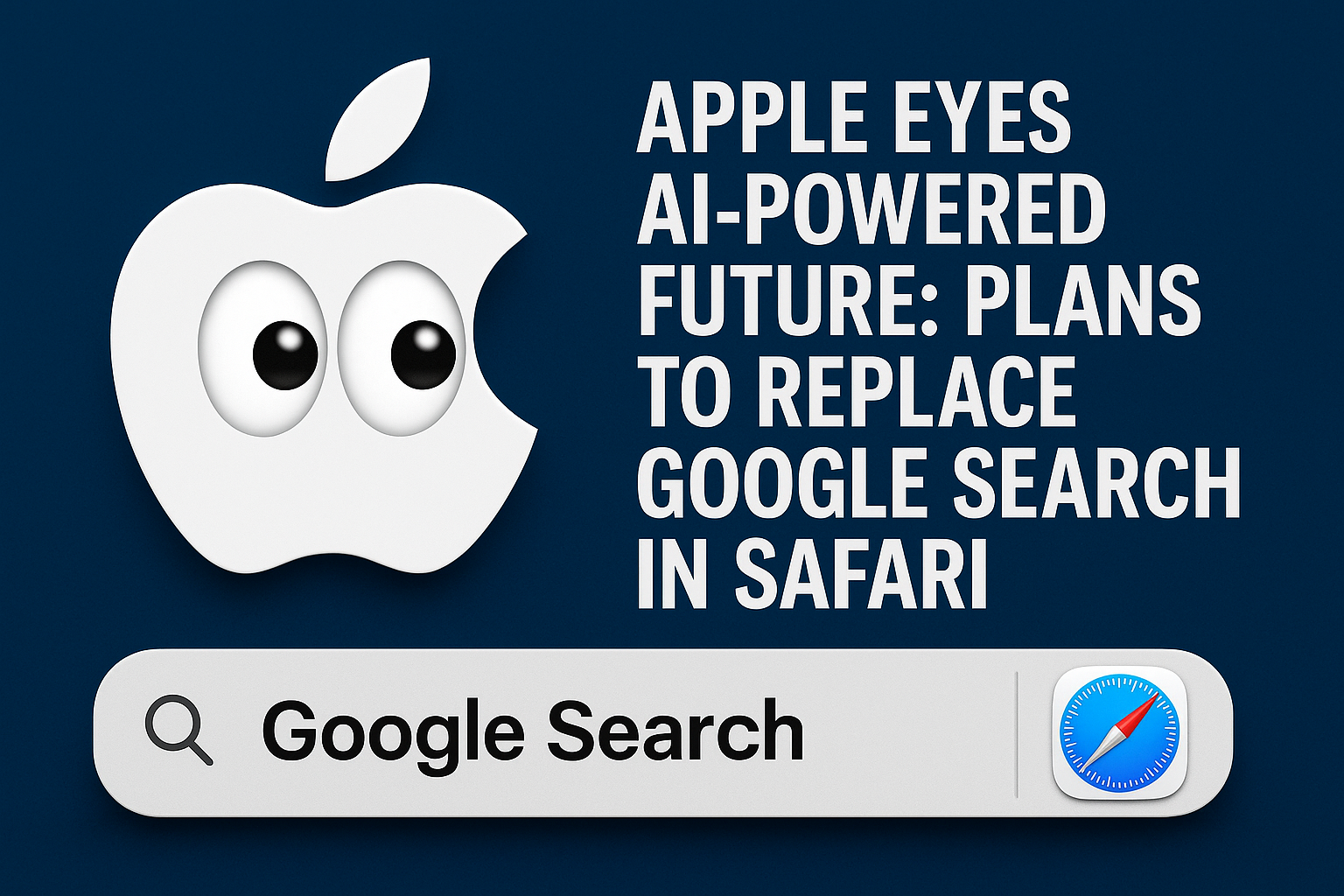In a bold move that could shake the foundation of the search engine market, Apple is reportedly exploring the possibility of replacing Google Search with AI-powered alternatives in its Safari browser. This strategic shift signals a deeper ambition from Apple to further weave artificial intelligence into the core of its user experience—and to reduce reliance on its longtime partner (and sometimes rival), Google.
A New Era of Search in Safari
According to insiders familiar with the matter, Eddy Cue, Apple’s Senior Vice President of Services, is leading exploratory talks with leading AI firms, including OpenAI, Anthropic, and Perplexity AI. The goal: embed cutting-edge conversational AI into Safari’s default search functionality.
This move would mark a significant departure from the current deal where Google pays Apple an estimated $18–20 billion annually to remain Safari’s default search engine on iPhones and Macs. With rising pressure from the U.S. Department of Justice’s antitrust case against Alphabet, Google’s parent company, Apple may see an opportunity to pivot and reimagine what search looks like in an AI-first world.
Why AI? Why Now?
The rise of tools like ChatGPT, Gemini AI (Google’s flagship AI assistant), and other conversational interfaces has shown that users are hungry for more intuitive, answer-first search experiences. Traditional search engines are being challenged by models that can understand natural language, summarize web pages, and offer personalized insights in real-time.
Apple’s push into this space could be a game-changer. Not only does it align with its privacy-centric philosophy—by potentially minimizing data sent to third parties—but it also gives Apple more control over the user journey.
Google’s Grip Loosening?
While no formal deal has been struck yet, the mere idea of Apple transitioning away from Google has already stirred market speculation. Alphabet’s stock experienced brief turbulence following reports of these internal Apple discussions. Analysts caution that if Apple drops Google as the default search engine, it could seriously dent Google’s mobile search dominance and ad revenue stream.
The Future of Search Is Disrupted
This development underscores a larger trend: AI is disrupting the search engine market at its core. From OpenAI’s ChatGPT browsing capabilities to Perplexity AI’s fact-based conversational answers, the very nature of how we find information online is evolving—and Apple wants in.
If Apple moves forward, we could soon witness Safari users interacting with a smart assistant-style interface rather than typing into a search bar powered by Google. It’s a future where search is not just about indexing the web, but understanding the user.
What’s Next?
Whether Apple ultimately replaces Google Search or merely enhances it with AI integration remains to be seen. But one thing is clear: the era of static search is ending, and Apple is positioning itself at the forefront of the AI-powered revolution.
“Search is about to become something very different. And Apple doesn’t want to be left behind,” said one industry analyst.
With AI disruption at full speed and the DOJ breathing down Google’s neck, Apple’s next move could redefine how over a billion people experience the internet.



